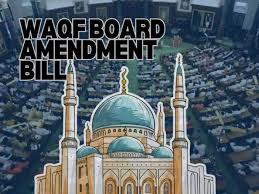The Waqf (Amendment) Bill, 2024
The Waqf (Amendment) Bill, 2024, introduced in the Lok Sabha on August 8, 2024, seeks to modify the Waqf Act, 1995, which governs waqf properties in India. The proposed amendments aim to enhance the management and regulation of waqf properties.
Key changes include:
- Renaming the Act to ‘United Waqf Management, Empowerment, Efficiency, and Development Act, 1995’
- Restricting waqf declaration to individuals who have practiced Islam for at least five years and own the property
- Eliminating waqf by user and ensuring waqf-alal-aulad doesn’t infringe on heirs’ inheritance rights
- Empowering Collectors to survey waqf properties and removing the Waqf Board’s authority to determine waqf properties
- Reconstituting the Central Waqf Council to include non-Muslim members and changing the composition of Waqf Boards
- Allowing appeals against Tribunal decisions in the High Court within 90 days
- Granting the central government powers to make rules regarding waqf registration, accounts, and proceedings
Hyderabad MP Asaduddin Owaisi has urged citizens to resist the Waqf Amendment Bill, 2024, labelling it as “draconian” and “unconstitutional”. He accused the Narendra Modi-led government of attempting to seize control of waqf properties, including places of worship, spiritual centers, burial grounds, and agricultural lands. Owaisi emphasized the need for swift action, encouraging people to submit their objections in large numbers before the deadline. To simplify the process, he announced that the All India Muslim Personal Law Board (AIMPLB) has created a QR code, enabling individuals to register their objections via email. “I appeal to everyone to utilize their mobile devices, scan the QR code, access their Gmail, and send their objections,” he said, stressing the importance of taking action before the September 13, 2024, deadline.
Additionally, the Bill permits the establishment of separate Waqf Boards for Bohra and Agakhani sects, similar to the existing provision for Sunni and Shia sects.





